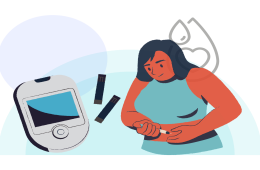Low-Code Solutions Are Driving Quality and Patient Safety
According to WHO:
“Globally, as many as 4 in 10 patients are harmed in primary and outpatient health care. Up to 80% of harm is preventable. The most detrimental errors are related to diagnosis, prescription and the use of medicines”

It is abundantly clear that patient safety is a big and important issue across the world. The fact that 80% of the harm is preventable makes it imperative that we find solutions that solve this problem at scale and with efficiency.
Now the question is how do we make a world where people get access to the care they deserve anywhere without compromising on patient safety and quality?
At Build-a-Care, we think that we can bring that revolution by enabling hospital systems and health networks to deploy highly configurable, scalable, and easy-to-use apps using a low-code/no-code platform.
Some benefits of using such a platform are:
- Allow people with little to no experience in programming to create apps according to their clinical needs.
- Quickly deploy apps and save time, resources, and money. When you bring down costs you are able to focus on other important aspects of care, ultimately leading to better care and patient safety.
- The Apps are inherently HIPAA compliant and therefore you don’t have to worry about patient privacy.
- Manage medication workflows to make sure the right meds are delivered to the right patient.
Low-Code/No-Code platforms give clinicians and Hospital IT teams the to quickly iterate and create a workflow that is more relevant and efficient for their use cases. Technology has enabled transformation across different industries now it’s time to unlock its potential in improving care and patient safety by providing comprehensive low-code/no-code solutions so that the people who provide care can design things according to their needs and challenges.
Insights
-

No-Code Tools for Managing Mental Health and Burnout in Healthcare Settings
Read more“P4” is a term that is often associated with future of medicine – prediction, prevention, personalization and patient participation. Many current health related technologies have already started moving towards the future and many more innovations are yet to come, that will make the goal of holistic medicine true.
-

Impact of health technology on diabetes management
Read more“P4” is a term that is often associated with future of medicine – prediction, prevention, personalization and patient participation. Many current health related technologies have already started moving towards the future and many more innovations are yet to come, that will make the goal of holistic medicine true.
